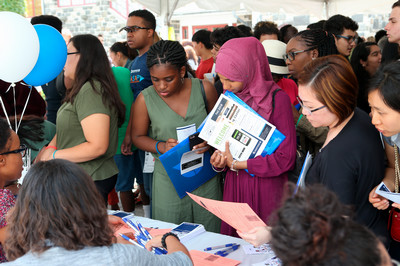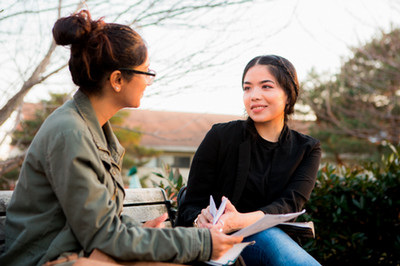The Gardner Institute
The John N. Gardner Institute for Excellence in Undergraduate Education is a non-profit organization dedicated to partnering with colleges, universities, philanthropic organizations, educators, and other entities to increase institutional responsibility for improving outcomes associated with teaching , learning , retention , and completion. Through its efforts, the Institute will strive to advance higher education’s larger goal of achieving equity and social justice.
Transforming the Foundational Postsecondary Experience ™ focuses on closing performance gaps and improving student success outcomes in ways that move toward eliminating factors such as demographics and zip code as the best predictors of who gets to graduate. The Foundational Postsecondary Experience refers to the critical first two years of college education and typically involves the accumulation of sixty semester credits toward a degree. Through a process of system redesign, institutions participating in the effort will develop and implement plans over a five-year period to close inequitable performance gaps, enhance teaching and learning practices, and promote student success, completion, and retention. The Gardner Institute believes that Institutional Transformation occurs when race/ethnicity; family income; and zip codes are no longer the best predictors of a student’s success and degree completion.
Core Leadership Team
- Christine Mangino, President, Queensborough Community College
- Phyllis Curtis-Tweed, Provost and Vice President for Academic Affairs
- Brian Mitra, Vice President for Student Affairs and Enrollment
- Elizabeth Nercessian, Director, Student Success
- Elisabeth Lacker, Director Institutional Research
- Lanaia DuBose, Chief of Staff, Office of the President
Gardner Institute Activities AY 2023-2024
Focal Areas
These focal areas were determined from the ITA and RWA surveys and the Sensemaking event in Fall 2023 attended by campus stakeholders.
- First-Year Experience
- Advisement
- Emergency Aid for Basic Needs
- Communications
Documents
- Our "Big Why"
- ITA Survey Result Report
- RWA Survey Results Report
- Sensemaking Session Slide Deck
- Post Sensemaking Report
Activities Completed
- Fall 2023 - Gardner Core Team Selected
- Fall 2023 - Administered RWA Survey
- Fall 2023 - Administered ITA Survey
- Fall 2023 - Facilitated Sensemaking session with campus stakeholders
- Winter 2024 - Post Sensemaking results validated by campus stakeholders
- Winter 2024 - Working Groups selected based on chosen focal areas
- Spring 2024 - First Year Experience Working Group selected and charged
- Spring 2024 - First Year Experience working group attends Gardner Academy
- Spring 2024 - First Year Experience working group develops plan for QCC based on Academy results
- Spring 2024 -Emergency Aid Working Group selected and charged
- Spring 2024 -Emergency Aid Working Group attends Gardner Academy
- Spring 2024 -Emergency Aid Working Group provides recommendations to leadership
Prioritized Transformation Activities Timeline
Year 0
- Fall 2023 - Surveys administered to campus
- Winter 2024 - Focal areas developed
- Winter 2024 - Sensemaking Session on Campus to validate focal areas
Year 1
- Spring 2024 - Academy on the First Year of College
- Spring 2024 - Academy on Emergency Aid for Basic Needs
- Spring 2024 to Fall 2025 - First-Year Redesign
Year 2
- Spring 2025 - Advising Redesign
- Spring 2025 and Fall 2026 - Achieving the Dream and Gardner Institute Transformation Review and Reprioritization
Year 3
- New processes determined after review and prioritization
Gardner Working Groups
Academy on the First Year Working Group
Spring 2024

Charge
Learn about different theories, policies and practices surrounding student success in the first year of college. Conduct an institutional audit and develop a plan using data aimed at improving the experience of students in their first college year.
Activities
- Review data visualizations and compare the college's outcomes to those of institutions that have a similar admissions, enrollment, and endowment profile
- Complete an audit of policies, practices, and programs available on campus targeted at first-year student success with a focus on the diversity of first-year students and equity gaps
- Development of a plan to improve the experience of students in the first college year
Members
- Elizabeth Nercessian (Co-Chair)
- Bonnie Flaherty (Co-Chair)
- Michael Verdino (ATD Representative)
- Angelica May
- Stefan Spezio
- Karen Alleyne
- Victor Fichera
- Rachel Jerome
Spring 2024 Activities Completed
- Completed Gardner Academy on the First Year
- Determined best practices for first-year experience offerings
- Undertook inventory of offerings for first-year college students
- Identified gaps in current offerings
- Developing a plan for a first-year experience tailored to Queensborough that addresses reducing equity gaps
Emergency Aid Working Group
Spring 2024

Charge
Investigate trends associated with offering emergency aid to students and develop a plan to build a sustainable emergency aid programs, leveraging best practices for strategic resource allocation, and maximize educational experiences for traditionally marginalized and under-resourced students.
Activities
- Define the purpose and appropriate use of emergency aid
- Identify and track student data to assess emergency aid program impact
- Construct an action plans for the sustainable, effective, and equitable distribution of emergency aid funds
- Identify financial, in-kind, and partner resources aimed at increasing equitable access to postsecondary education for all students
Members
- Amawati Gonesh
- Veronica Lukas
- Christine Francavilla
- Emily El Halouani
- Miguel Quiroz
Spring 2024 Activities Completed
- Completed Gardner Emergency Aid Course
- Undertook inventory of current emergency aid offerings
- Identified gaps
- Developed suggestions for closing gaps/ plan
How the Gardner Transformation Work Connects to Achieving the Dream
The college is combining our learnings from both the Gardner Institute and Achieving the Dream (ATD). Gardner will provide the professional development needed in the chosen focus areas while ATD will help us build the capacity as an institution to sustain the change.
The capacities being worked on through ATD are:
- Policies and Processes
- Teaching and Learning
- Data and Technology
- Communications
Three projects are part of our work with ATD: First-year success, integrating career advisement and low-success courses. This will allow the college to build the institutional muscles for success and sustainability.



